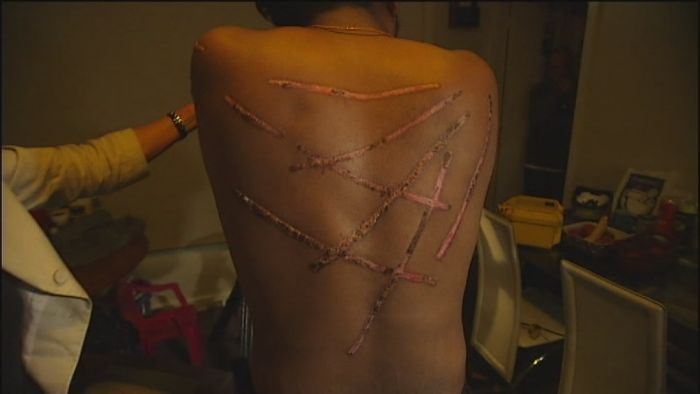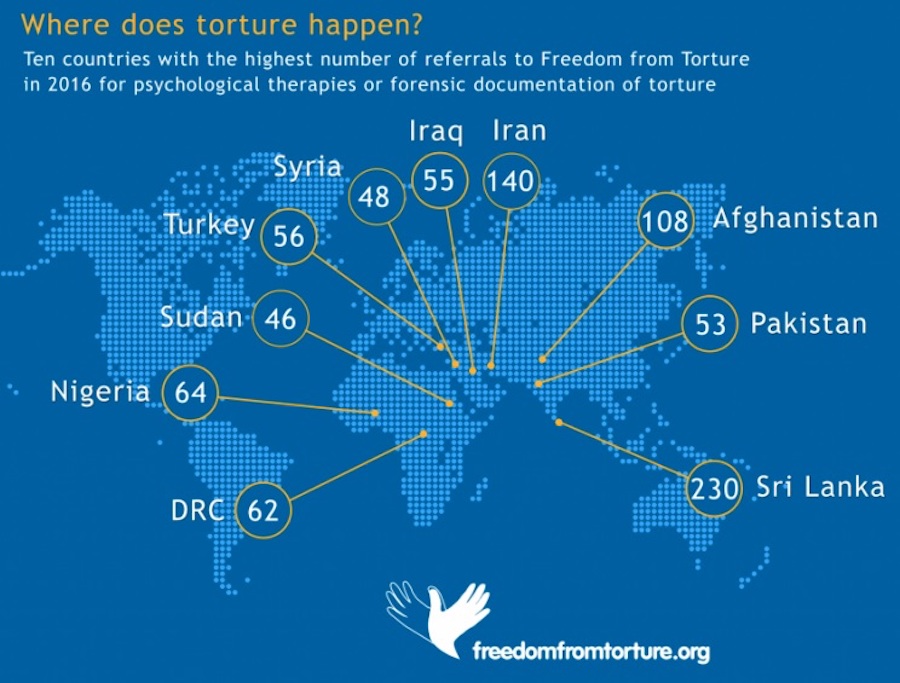A Brief Colonial History Of Ceylon(SriLanka)
Sri Lanka: One Island Two Nations
A Brief Colonial History Of Ceylon(SriLanka)
Sri Lanka: One Island Two Nations
(Full Story)
Search This Blog
Back to 500BC.
==========================
Thiranjala Weerasinghe sj.- One Island Two Nations
?????????????????????????????????????????????????Wednesday, April 18, 2018
UNHRC Cannot Rely On Sri Lanka To Prosecute Its Armed Forces – Part III

As the search for justice for victims of the Tamil genocide continues.
 –
While the application of ‘universal jurisdiction’ by individual states
to prosecute war criminals must be pursued rigorously, the way forward
for member states of the UN Human Rights Council is to lobby the UN
Security Council for an ICC referral or for the establishment of an international special criminal tribunal for Sri Lanka.
–
While the application of ‘universal jurisdiction’ by individual states
to prosecute war criminals must be pursued rigorously, the way forward
for member states of the UN Human Rights Council is to lobby the UN
Security Council for an ICC referral or for the establishment of an international special criminal tribunal for Sri Lanka.
This is part 3 of
a series of articles showing the UN Human Rights Council (UNHRC) cannot
rely anymore on the Sri Lankan government to prosecute members of its
armed forces and senior political leaders – those responsible for, “some
of the worst crimes in the 21st century.”
The way forward for member states of the UN Human Rights Council is to
lobby the UN Security Council for an ICC referral.
While part 1 argues the case that prolonged reliance on Sri Lanka to prosecute its war criminals is unsustainable, Part 2 makes it
more crystal clear that those prosecutions would not be forthcoming, by
examining among other, the role played by Sri Lanka’s current
president, the plethora of Sri Lanka’s lies, the phenomena of double
talk, its sworn loyalty to its armed forces as well as its flawed ‘war
on terror’ narrative in addition to the never ending triumphalism
mentality, the volatile political situation in Sri Lanka, the
probability that President Sirisena running for a second term in 2020,
is likely to team up with Gotabaya Rajapaksa as his prime minister – the
former defense secretary, alleged architect of the genocidal war and
war time atrocities, presumably with the backing of China. (Since
writing Part 1, Sirisena has voted against the ‘No Confidence Motion’
against Prime Minister Ranil Wickremesinghe, he was initially expected
to vote for it – the fact he chickened out was looked upon as a betrayal
and a hammer blow to the Mahinda Rajapksa crowd). Albeit there’s no
denying the current chaotic political scene in Sri Lanka only
exacerbates the issue, supporting the contention that Sri Lanka cannot
be relied upon to prosecute its armed forces. More catastrophic
political developments in the cards as the presidential elections draws
near in 2020 would only further impede the search for justice for the
victims of the Tamil genocide…
Part
3 goes to the core commitments that Sri Lanka is supposed to deliver
that needs fulfilling, shining a light on serious ongoing violations and
exposing its inherent and open bias towards the security forces and the
protection it offers them, which together reinforce the argument at the
very heart of these series of articles – that the UNHRC cannot rely
anymore on the Sri Lankan government to prosecute members of its armed
forces and senior political leaders.

Scrutinizing
Sri Lanka’s implementation of Resolutions 30/1 and 34/L1 and its rather
spurious claims of compliance through the prism of some damning
reports, among other, the report released by the Sri Lanka Monitoring
and Accountability Panel (MAP), a must read, parts of which is discussed in part 1, it
is clear, it didn’t need rocket science for member states to pick up on
Sri Lanka’s ‘dithering’, ‘procrastination’ and ‘bad faith’ – brought
home by some disturbing findings from
the International Truth and Justice Project (ITJP), Amnesty
International (AI), Human Rights Watch (HRW) the Sri Lanka Campaign
(SLC), Freedom from Torture. Aljazeera and UN mandate holders, among other.
Fact Checking Reveal Extent of Non-Compliance, Deceptions and Cunning:
Yet
again Sri Lanka has failed to deliver on its transitional justice
commitments; failed to take concrete action to prosecute perpetrators of
ongoing violations including torture and sexual violence. And only by
fact checking everyone of those commitments Sri Lanka signed up to, with
the real situation on the ground, the extent of Sri Lanka’s
non-compliance, deception, lies, its dubious
and cunning approach to accountability; its calculated indifference,
indeed its attempts to escape from establishing a hybrid court – is
revealed. The Mid-Term Report on Sri Lanka prepared by the Transnational
Government of Tamil Eelam (TGTE)
together with its rebuttal to the statement made by Sri Lanka’s foreign
minister to the UNHRC, says it all – with respect to the implementation
of it commitments, Sri Lanka gets a failing grade. TGTE’s findings are
an expose on Sri Lanka’s attempts to con its way out of the situation
with all talk and no action.
In Part 1, we drew attention to the 3rd Spot
report, released by MAP, a panel of experts in the field “established
to provide independent monitoring, advice, and recommendations on the
progress of transitional justice in Sri Lanka.” The 34 page report,
captioned: ‘How the International Community’s Passivity Has Enabled
Further Mass Atrocities in Sri Lanka: the Case of Ongoing Illegal
Detention, Torture, and Sexual Violence’, serves as a continuing
indictment on Sri Lanka. Expressing a lack of confidence in Sri Lanka’s
ability to address impunity, MAP urges the UNHRC, “to
lobby the UN Security Council to refer the Sri Lanka situation to the
International Criminal Court, as a statement of support to the victims
and human-rights defenders seeking accountability in Sri Lanka.”
MAP’s Catalogue of Sri Lanka’s Serious Ongoing Violations:
MAP lists,
“serious crimes, the Sri Lankan security forces continue to commit –
including illegal detention, torture and sexual violence – with
impunity,” catalogued by “credible observers”, crimes, which it
attributes to, “seemingly, the failure of the international community to
hold Sri Lanka to account for past crimes,” that has, it says,
“encouraged the continuation of such violations.”

Map laid out its concerns citing many reports and statistics: for one the report filed
by the UN Working Group on Arbitrary detention, which points to the
Prevention of Terrorism Act (PTA) “as one of the key enablers of
arbitrary detention for over four decades.” Further, sharing both the
findings of the Sri Lanka Campaign on surveillance and the stats
provided by Sri Lanka’s Human Rights Commission on unlawful arrests and
torture by police where, “in the first three quarters of 2017, the Human
Rights Commission of Sri Lanka received 5614 complaints, 1174 of them
related to unlawful arrest and torture by police,” MAP surmises how the
heavy handedness of the security services has had an impact on the
community, leaving , “many Tamils fearing they might be abducted,
arbitrarily detained, tortured, sexually abused or killed as security
forces continue ‘surveillance, harassment and intimidation’.” MAP
believes and has always warned: “the right choices will help foster
accountability and reconciliation in Sri Lanka, while the wrong ones
will not only waste an opportunity to deliver meaningful justice to
victims, but also undermine stability for years to come.”
Sri Lanka’s Attempt Yet Again to Manipulate Casualty Figures:


